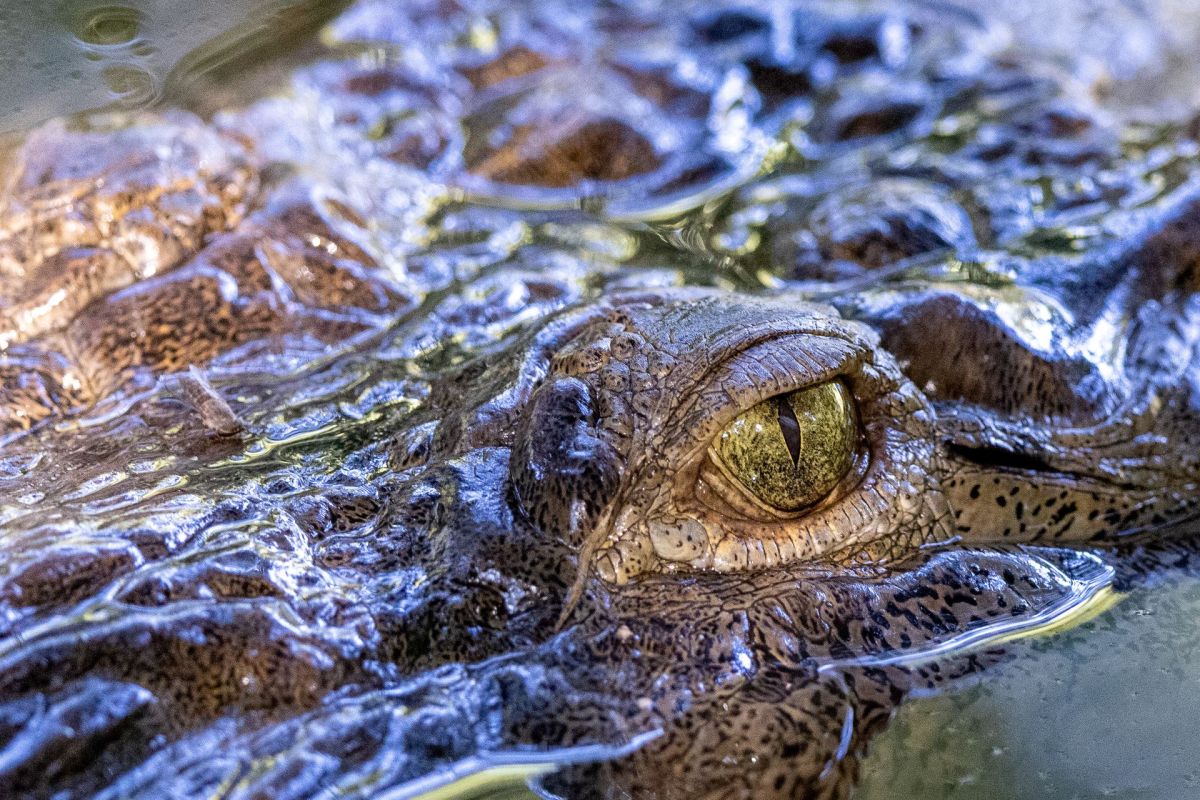Very few species on Earth can impregnate themselves — but crocodiles may be the next on the list.
What's happening?
An 18-year-old female American crocodile kept in captivity at a zoo in Costa Rica is the first known member of her species to have become pregnant without the intervention of a male.
Although the pregnancy occurred in 2018, scientists tested the fetus in 2023 and determined it was 99.9% "genetically identical" to its mother, according to Euronews.
The female crocodile laid seven eggs, which were artificially incubated by zookeepers. Six eggs reportedly contained "non-discernable" matter, while the remaining egg contained a fetus — which was stillborn but still fully formed.
Why is this making headlines?
This is the first known instance of a crocodile undergoing "parthenogenesis," a form of asexual reproduction. It's been documented in other species like snakes, birds, and lizards, but up until now, not crocodiles, per Euronews.
The findings, published in the Royal Society journal Biology Letters, suggest that instances of virgin births among crocodiles may go undetected. And like pathogenesis in other species, its occurrences may be rising.
The most likely cause of these virgin births is terminal fusion automixis. This process occurs when the egg fuses with a "sister nucleus," a cell formed simultaneously with the egg cell — which "generally can't be fertilized," according to Euronews.
This differs from the original theory that fertilization resulted from the female holding sperm for long periods.
Virgin births have now been documented in two classes of animals called "archosaurs" — birds and crocodilians — both of which are descendants of dinosaurs.
Researchers noted that instances of parthenogenesis can provide "tantalizing insights" into the unusual reproductive capabilities of these species and their ancestors.
Parthenogenesis and endangered species
The American crocodile is on the IUCN's Red List of species at risk of extinction, meaning finding any way to keep its eggs viable may be essential to maintaining the population.
But since laying eggs in captivity is rare for crocodiles, especially without a mate, many zookeepers throw the eggs away, assuming they are all non-viable.
"These findings therefore suggest that eggs should be assessed for potential viability [even] when males are absent," the researchers reported, per Euronews.
Yet, just because this fetus did not survive does not mean that all crocodiles born via parthenogenesis will be stillborn.
The researchers indicate that some "parthenogens" have reached adulthood, including instances from species like turkeys, California condors, boa constrictors, and whitespotted bamboo sharks, Euronews reported.
This is hopeful news for populations of at-risk and endangered species like the American crocodile.
Join our free newsletter for cool news and cool tips that make it easy to help yourself while helping the planet.









